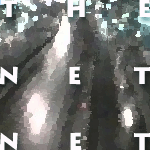I've been on a nonfiction jag for more than five years. Lately, it's been books about corporate mistreatment of the environment: how they use public relations agencies to spread misinformation to the public and hire lawyers to challenge or roll back regulation. It's not uplifting stuff.
So I struck back and opened a novel I'd been given at Christmas. My Year of Meats, by Ruth Ozeki, is a double tale about a Japanese-American documentary filmmaker and a Japanese housewife who is, in essence, her audience. And found I'd stumbled onto yet another topical tale, taking aim at the abusive animal-husbandry techniques that have made our food animals so susceptible to disease in an effort to save money -- and have exposed us to a range of health problems from the fleeting to the fatal.
Jane Tagaki-Little is a starving documentary filmmaker who accepts a production job on a television series designed to promote the use of meat in Japanese cooking, paid for by a US-beef exporting group. Akiko Ueno is the wife of the agency drone that's producing this series, and he instructs his wife to watch the show each week and carefully prepare each recipe it demonstrates. These aren't just cooking shows. They aim to present a snapshot of a wholesome American family, presumably made all the more healthy and wholesome by a liberal diet of meat, preferably beef. The motto of the show, as Tagaki-Little is admonished, is "Pork is possible, but beef is best!"
Tagaki-Little rationalizes from the beginning that she can use this opportunity to give Japanese a rare insight into the diversity and complexity of US culture. When various SNAFUs leave her the director of the show, she aggressively pursues her chance to satisfy her interest as a documentarian, deeply contradicting the wishes of the producing agency. She is finally joined on location by Joishi Ueno (whom she nicknames John -- "Get it?" he gleefully reports later, "John Wayne-o!"), who is determined to rein in this rude and vexing woman. Meanwhile, at home his wife, whose frailness and infertility have made her a target of his emotional and physical abuse, sees precisely the shows that Tagaki-Little is trying to make and manages to escape her situation largely through the inspiration she takes from Tagaki-Little's vision.
As Tagaki-Little gets more control of the show, she heightens the subversive quality of the families she portrays, from a family full of adopted Korean children to, ultimately, a biracial lesbian couple that is vegetarian. She also learns about antibiotic and hormone use in cattle raising and begins to understand some of the human effects of these practices. This is a carefully symmetrical tale of self-discovery, fertility, and corporate manipulation, and Ozeki leaves no plot twist or characterization to chance.
Ozeki includes some grim details, and she offers contact information for families grappling with congenital defects caused by DES, a drug that was briefly given to pregnant women to reduce the rate of miscarriage and was more lastingly used in cattle, among other things, to induce abortion. The book cuts a wide swath, from indicting the pharmaceutical industry (and the condescension of the medical community) to shrinking in horror from the way food animals are raised in the United States. Domestic abuse, control over one's destiny, and what really constitutes a loving family are other themes of this novel. That's a lot of territory, and this book does a better of job of raising the issues than exploring them. The remarkable thing is that Ozeki's story isn't dragged down by its serious subject matter.
My Year of Meats, like its main character, has an agenda, and no reader will escape its critique. Still, the primary characters are engaging, and the year of meats ends with them in happier and more secure places in their lives. For all its seriousness, Ozeki shows us at least a few people who manage to face these issues head on and still find a happy personal space, a kind of politically correct happy ending.



